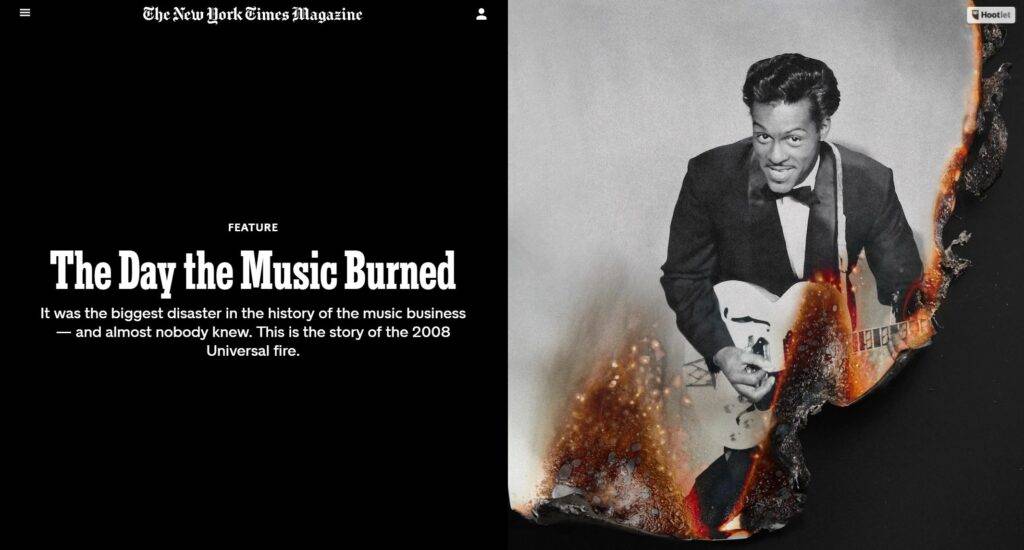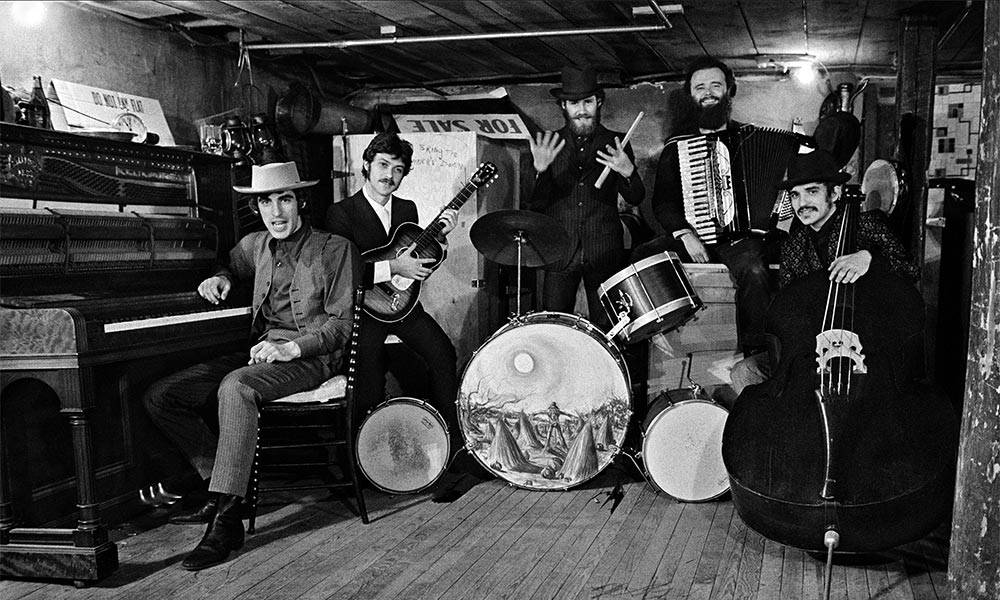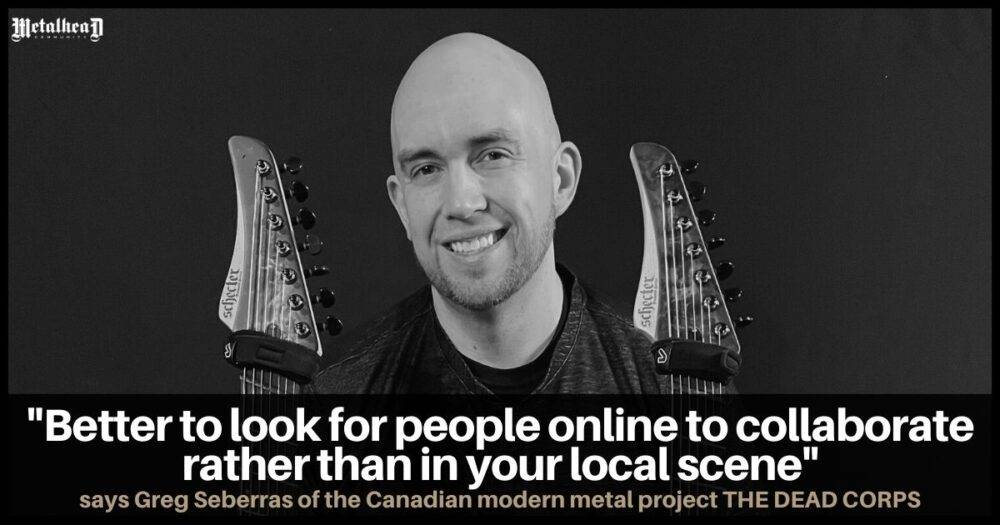Navigating Tectonic Shifts: Thomas Coesfeld’s Vision for BMG in a Transforming Music Industry

In the fast-paced realm of the music industry, where change is the only constant, Thomas Coesfeld has wasted no time making his mark as the CEO of BMG. Taking the reins on July 1, 2023, Coesfeld has embarked on a transformative journey, steering BMG through a series of executive orders that have redefined the global strategy of the billion-dollar music company.
A Bold Approach: Redefining Strategies
In his first six months at the helm, Coesfeld has made strategic decisions that signify a departure from the status quo. Some notable moves include severing third-party distribution for BMG’s digital business, opting for a direct approach with industry giants Spotify and Apple Music. Additionally, a surprising physical distribution agreement with Universal Music Group replaced the long-standing partnership with ADA/Warner.
A significant shift in focus involved reverting BMG’s business solely to music rights, bidding farewell to film/TV and live music operations. Coesfeld’s restructuring efforts also included reducing overhead, resulting in over 100 layoffs at BMG.
Coesfeld’s recent commitment to doubling down on investment in BMG’s US operation and the promotion of Jon Loba to head of recorded music in the territory underscore his proactive approach to adapt to the evolving landscape.
The Driving Force: Adapting to Industry Shifts
Coesfeld attributes these strategic overhauls to what he refers to as “tectonic shifts” in the music rights business. These shifts, according to him, are not only influenced by changing listening and creation patterns among young people but are also a response to a clear slowdown in revenue growth within mature streaming markets like the US and UK.
“Everyone can look at these streaming numbers and see declining growth rates. Growth will look different in the next five years compared to the past five years; a lot of the key drivers of previous growth, in terms of geographies, are getting closer to saturation point. A company like ours must recognize these facts and deal with them,” emphasizes Coesfeld.
The CEO points to recent UK statistics indicating a modest annual retail spend increase on streaming subscriptions, primarily driven by price hikes rather than new subscribers. Coesfeld acknowledges that the industry is undergoing changes, and he is determined to position BMG ahead of the curve.
“I went over one of [MBW’s] daily news briefings the other day, and there’s a clear emerging industry consensus that the market is changing. I am very happy that we at BMG came to that conclusion very early on,” notes Coesfeld.
Reversing Course: Departing from Predecessor’s Initiatives
Interestingly, Coesfeld’s response to these shifts involves a reversal of several initiatives implemented by his predecessor, Hartwig Masuch. The closure of BMG’s film/TV and live music initiatives, along with the promotion of Thomas Scherer to run BMG’s global recorded music catalog division, signifies a departure from Masuch’s recent initiatives.
Coesfeld justifies these changes, stating, “After 15 years under his leadership, that’s a phenomenal achievement. But the reason I acted so quickly here is because I’m convinced that, after a decade-plus of fast growth, you need a certain amount of consolidation internally. You need to say: ‘Okay, let’s recap. What worked? What didn’t?’”
Facing Industry Challenges Head-On
Reflecting on his experience managing decline in the print media industry, Coesfeld emphasizes the importance of focusing on controllable factors, prioritizing the right strategies, and placing people first. He draws parallels between the challenges of managing decline and the mentality required in the music industry.
“As company leaders, we tend to overestimate our impact on things when, in reality, whether your industry is growing or not growing, there are so many factors working [for or against you],” he adds.
A Collaborative Future: Shifting Attitudes and M&A Prospects
Coesfeld’s collaborative attitude becomes apparent in BMG’s recent partnership with Universal Music Group for physical distribution. He emphasizes the importance of collaboration and an open mindset when dealing with corporations, signaling a shift towards a more cooperative approach.
Regarding the discussions on shifting streaming royalty payments towards professional artists, Coesfeld supports the move, stating, “Artist-centric is a good step forward in the right direction to fight technologies which are basically playing the system and taking away royalties from rightsholders and artists.”
Despite acknowledging the challenges posed by rising interest rates, Coesfeld notes a healthy recovery in BMG’s deal flow for music rights acquisitions in the past six months. He anticipates more consolidation in the market, emphasizing that fully-fledged music companies are best positioned to take advantage of the current M&A landscape.
Youthful Leadership and Global Dynamics
At just 34 years old, Coesfeld brings a youthful perspective to the industry, having come of age during the era of Napster and witnessing Spotify’s launch in Europe at the age of 18. He jokes about the changing of the guard in the music industry and acknowledges the ongoing global dynamics shaping the landscape.
As BMG continues to assert its presence in the US market, Coesfeld emphasizes the importance of the US as the center of innovation in music, both for repertoire and technology. While affirming Berlin as the current headquarters, he leaves room for flexibility, stating, “The bigger question is, Does it matter?”
In conclusion, Thomas Coesfeld’s leadership at BMG reflects a proactive and adaptive approach to the challenges and opportunities presented by the ever-evolving music industry. With an emphasis on collaboration, a keen understanding of industry shifts, and a commitment to prioritizing what works for artists and fans, Coesfeld is navigating BMG through tectonic shifts with a forward-looking vision.






Responses